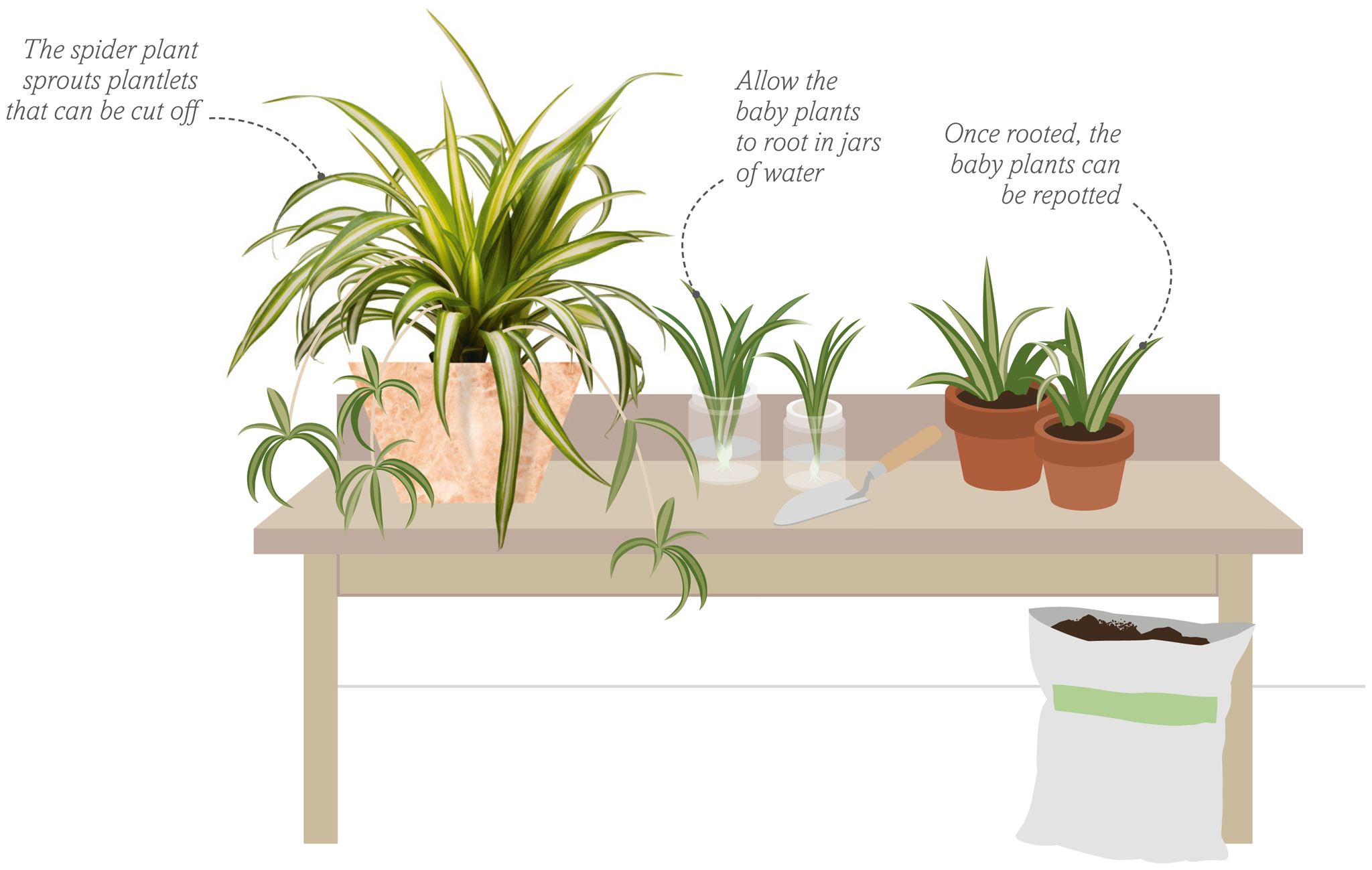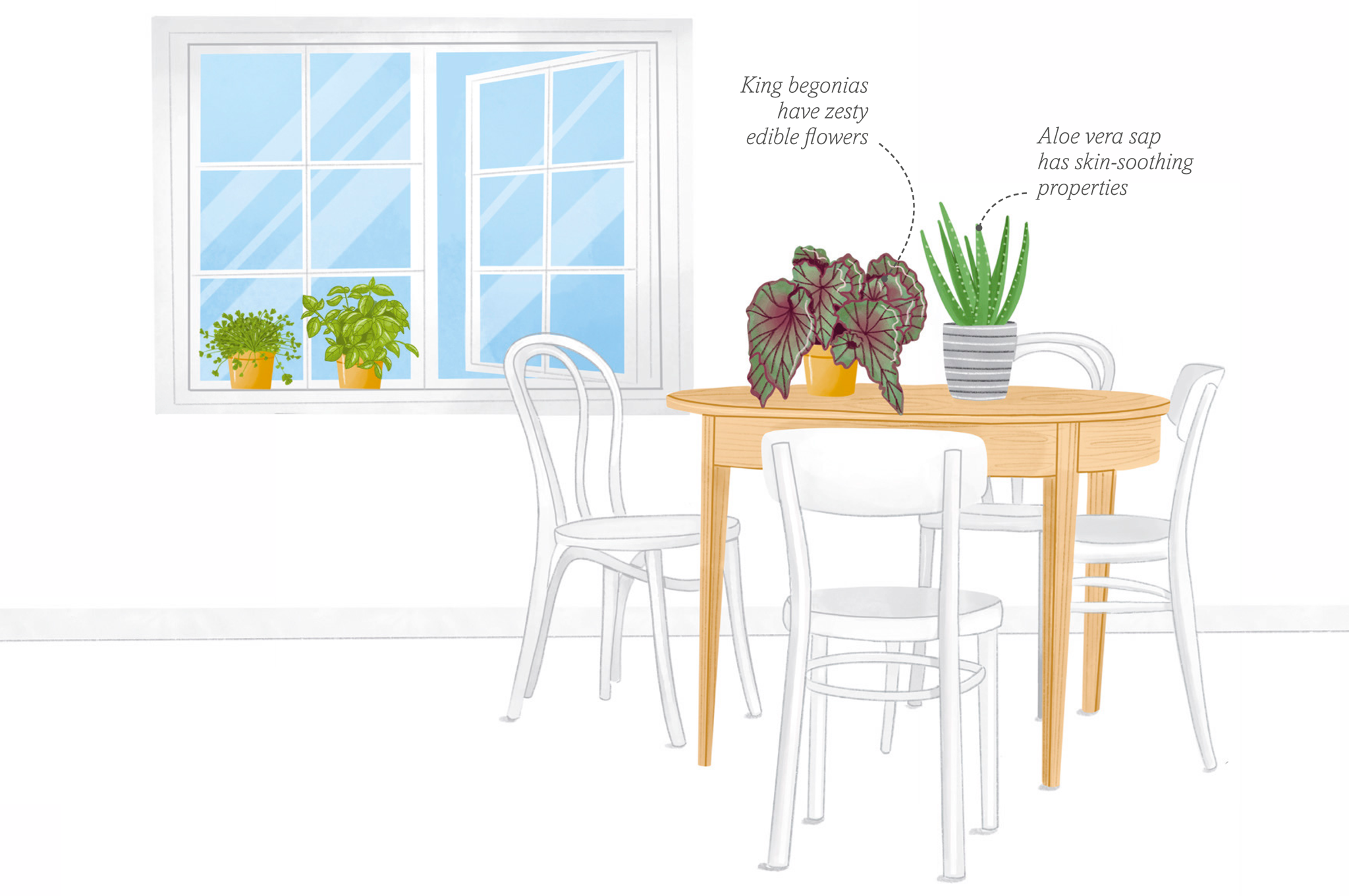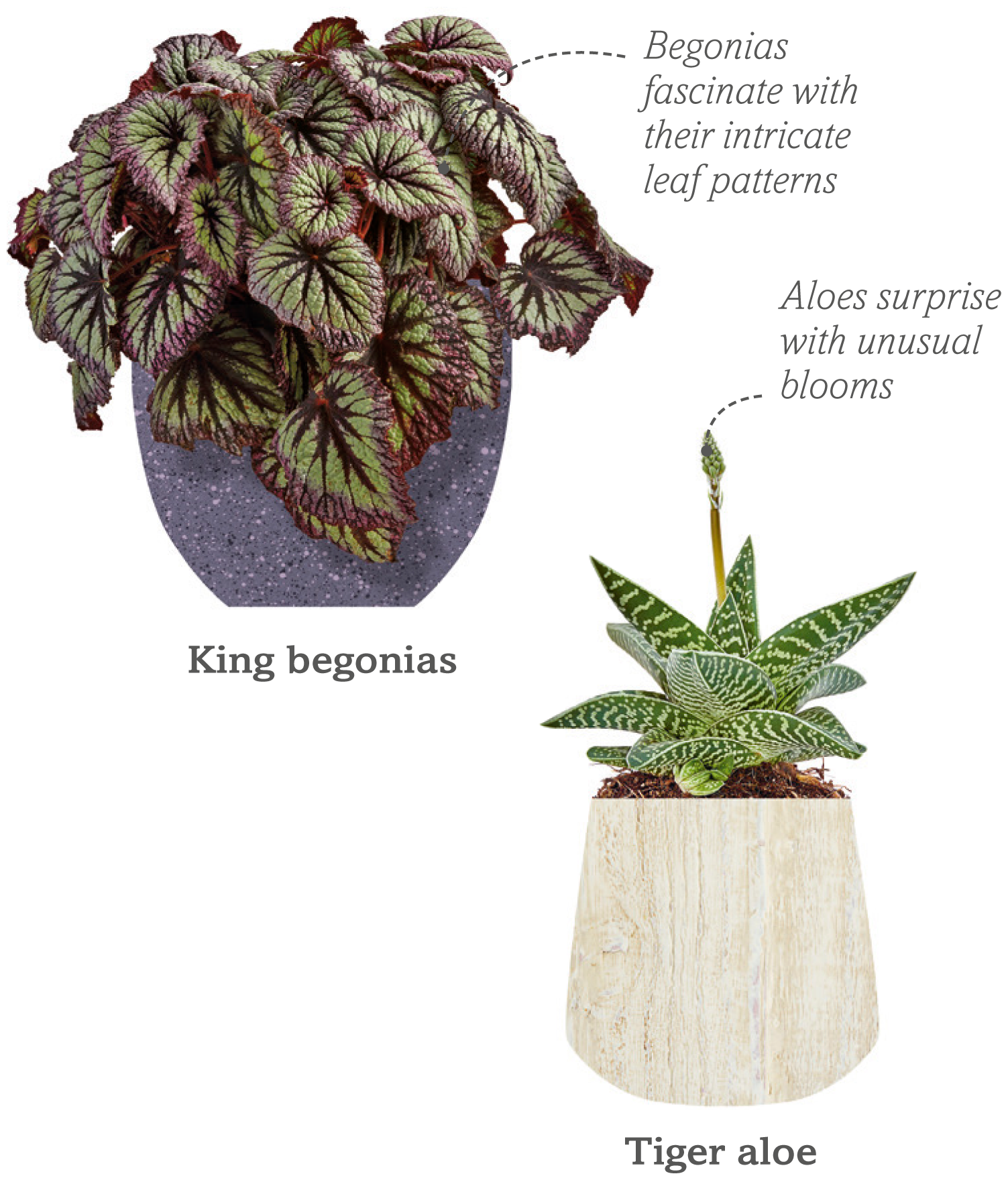HOUSEPLANTS AND MENTAL WELL-BEING
I lecture all the time on the benefits of outdoor gardening to our mental health, but many would be surprised by just how good indoor gardening is, too—especially as we are spending more of our time indoors, with some people not having access to their own outside space.
I believe that indoor plants can make a practical and emotional contribution to our well-being. Our ever-changing urban modern societies, alongside ever-advancing technological developments, exert a constant pressure on humans to “keep up” with this fast-paced life. This pressure can trigger stress, low moods, low motivation, and low self-esteem as well as contribute to record levels of depression, PTSD, anxiety, loneliness, and OCD.
Caring for houseplants offers an enjoyable experience that can help in recovery. The appreciation of nature runs deep in our evolutionary makeup. For our hunter-gatherer ancestors, the bright colors of flowers signaled nutrition and a food source, triggering the “happy” hormone dopamine in the brain at the prospect of a reward. Even now, when we have food all year round, the blossoming of flowers still induces that same feel-good chemical, while becoming absorbed in caring for plants can provide a calming focus to help the mind recuperate.
Focus & memory
The joy of seeing plants in flower or being fascinated by foliage can create positive distractions and spark happy memories.
- Happy distractions Being responsible for a living thing can break the cycle of negative thought patterns and replace them with positive ones, taking your focus away from your stresses and toward new life.
- Aide-mémoire Plants have the power to evoke pleasant memories, either by sight or fragrance. They can change our mood in an instant, turning away sadness and replacing it with happy thoughts. Seeing a potted kalanchoe that your grandmother used to have may spark a treasured childhood memory; the scent of jasmine might be a reminder of your wedding day: a poinsettia suggests Christmas for many: while the scent of gardenia transports us to summer vacation. Many such plants hold positive associations that have the power to make us smile.
Nurturing
Tending plants in your home or office will help you reconnect with nature.
- The feel-good factor Losing yourself in the care of plants frees your mind from any immediate stresses. This reduces levels of the stress hormone cortisol in your brain, resulting in calmer moods. Your mind is then focused on caring, which in turn releases dopamine, the hormone that makes you feel more positive and motivated.
- Break the cycle Caring for plants is absorbing and can soon become a regular hobby. This can help break the cycle of low moods and depression, as forming positive new habits is a recognized element in cognitive behavioral therapy (CBT).
- A sense of achievement Plants can boost self-esteem. To see a living thing thrive thanks to your care and attention evokes a feeling of pride. And success in the form of propagation or seeing your plant flower releases serotonin, another hormone that lifts and stabilizes your mood.
- A healthy relationship There is evidence to show that plants can have a positive impact on those suffering from eating disorders, as their focus is shifted to caring for another living thing. The situation needs to be handled sensitively, but, with support, the final aim is to see the person growing their own lettuce, peppers, herbs, and mushrooms indoors to help encourage a positive relationship with food.

Planting pride
Propagating and nurturing your own plants can bring an uplifting sense of achievement. The spider plant is a good choice to start with.
Homeliness
Plants can enliven your home and bring comfort and positivity, too.
- Visual therapy Introducing plants to a room can benefit those who are living with post-traumatic stress disorder (PTSD), as changing the appearance of your space is encouraged as a form of therapy.
- A breath of fresh air Plants can prompt us to let light and air into a room. Opening windows encourages fresh airflow, while birdsong from outside will lift the mood and distract from negative thoughts.

A healthy home
Plants can offer visual respite, provide edible treats, and encourage us to bring fresh air into our homes, boosting our mental and physical health in the process.
- The living home Humans are living things. We are hardwired to be close to the natural environment, and dull, urban spaces devoid of plants can quickly become oppressive and induce feelings of anxiety. Having living things in a house is what makes it a home; family, pets, and plants all coexist to create that sense of coziness. Adding growing plants and the natural colors of foliage and flowers can give a positive boost to your home and your mental state, reinforcing a feeling of security and familiarity and proving a happy sight to welcome you home.

Plant pets
As living, breathing organisms, plants can help bring a house alive, adding to the warmth and familiarity of your domestic space and even becoming a much-loved part of your family.
- Share the joy Sharing your delight in houseplants with others adds another dimension to the magic of growing them. Keeping friends and family up to date with your successes will help you connect with them, as well as instill confidence in yourself, while making a gift of plants you have grown yourself shows love and care and will spread positivity to loved ones who see you nurturing life. Receiving a plant as a gift, meanwhile, is a living reminder of the person who gave it to you—every time you see it, it will lift your spirits.

